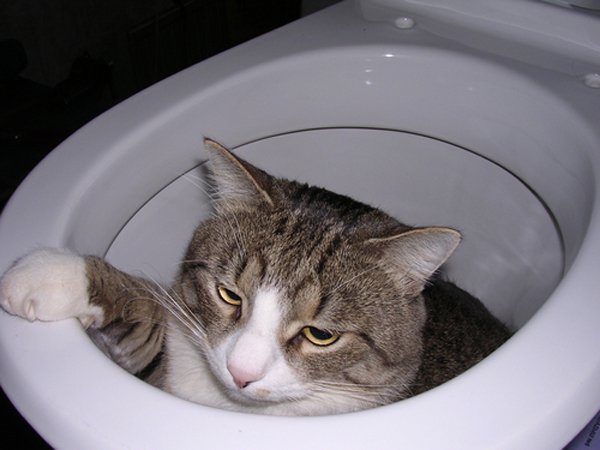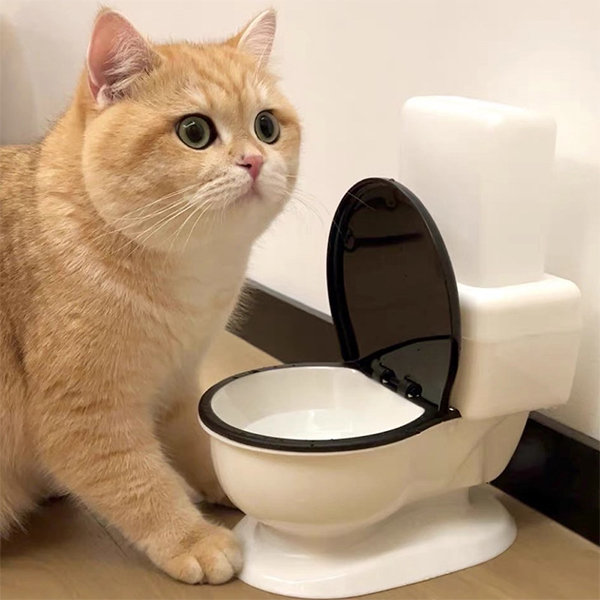Avoid Toilet Emergencies: Never Flush Cat Poop Down Your Toilet - Professional Advice
Avoid Toilet Emergencies: Never Flush Cat Poop Down Your Toilet - Professional Advice
Blog Article
Just about everyone is bound to have their own unique perception involving Can You Flush Cat Poop Down The Toilet?.

Introduction
As feline owners, it's important to be mindful of how we dispose of our feline buddies' waste. While it may seem practical to flush feline poop down the bathroom, this technique can have detrimental effects for both the atmosphere and human health.
Alternatives to Flushing
Fortunately, there are more secure and much more responsible methods to get rid of cat poop. Think about the complying with alternatives:
1. Scoop and Dispose in Trash
The most usual technique of disposing of feline poop is to scoop it into a biodegradable bag and throw it in the trash. Make certain to utilize a devoted trash inside story and deal with the waste quickly.
2. Use Biodegradable Litter
Go with eco-friendly pet cat clutter made from products such as corn or wheat. These clutters are environmentally friendly and can be safely thrown away in the garbage.
3. Bury in the Yard
If you have a yard, take into consideration hiding feline waste in an assigned location far from vegetable gardens and water resources. Make sure to dig deep adequate to stop contamination of groundwater.
4. Install a Pet Waste Disposal System
Invest in an animal waste disposal system especially developed for pet cat waste. These systems make use of enzymes to break down the waste, lowering odor and ecological effect.
Wellness Risks
Along with ecological concerns, flushing feline waste can also position health and wellness risks to people. Cat feces might have Toxoplasma gondii, a parasite that can trigger toxoplasmosis-- a potentially serious health problem, especially for expecting women and people with damaged body immune systems.
Ecological Impact
Purging cat poop presents dangerous microorganisms and bloodsuckers into the supply of water, positioning a substantial risk to aquatic communities. These pollutants can adversely impact marine life and compromise water high quality.
Conclusion
Liable animal ownership expands beyond offering food and shelter-- it additionally involves appropriate waste administration. By avoiding purging feline poop down the bathroom and selecting different disposal methods, we can minimize our ecological impact and shield human health and wellness.
Why You Should Never Flush Cat Poop Down the Toilet
A rose by any other name might smell as sweet, but not all poop is created equal. Toilets, and our sewage systems, are designed for human excrement, not animal waste. It might seem like it couldn’t hurt to toss cat feces into the loo, but it’s not a good idea to flush cat poop in the toilet.
First and foremost, assuming your cat uses a litter box, any waste is going to have litter on it. And even the smallest amount of litter can wreak havoc on plumbing.
Over time, small amounts build up, filling up your septic system. Most litter sold today is clumping; it is made from a type of clay that hardens when it gets wet. Ever tried to scrape old clumps from the bottom of a litter box? You know just how cement-hard it can get!
Now imagine just a small clump of that stuck in your pipes. A simple de-clogger like Drano isn’t going to cut it. And that means it’s going to cost you big time to fix it.
Parasitic Contamination
Believe it or not, your healthy kitty may be harboring a nasty parasite. Only cats excrete Toxoplasma in their feces. Yet it rarely causes serious health issues in the cats that are infected. Most people will be fine too if infected. Only pregnant women and people with compromised immune systems are at risk. (If you’ve ever heard how women who are expecting are excused from litter cleaning duty, Toxoplasma is why.)
But other animals may have a problem if infected with the parasite. And human water treatment systems aren’t designed to handle it. As a result, the systems don’t remove the parasite before discharging wastewater into local waterways. Fish, shellfish, and other marine life — otters in particular — are susceptible to toxoplasma. If exposed, most will end up with brain damage and many will die.
Depending on the species of fish, they may end up on someone’s fish hook and, ultimately on someone’s dinner plate. If that someone has a chronic illness, they’re at risk.
Skip the Toilet Training
We know there are folks out there who like to toilet train their cats. And we give them props, it takes a lot of work. But thanks to the toxoplasma, it’s not a good idea.

I'm certainly very excited about How to Dispose of Cat Poop and Litter Without Plastic Bags and I'm hoping you appreciated my article. Do you know about somebody who is involved in the subject? Do not hesitate to share it. Thank-you for taking the time to read it.
Contact Us Now Report this page